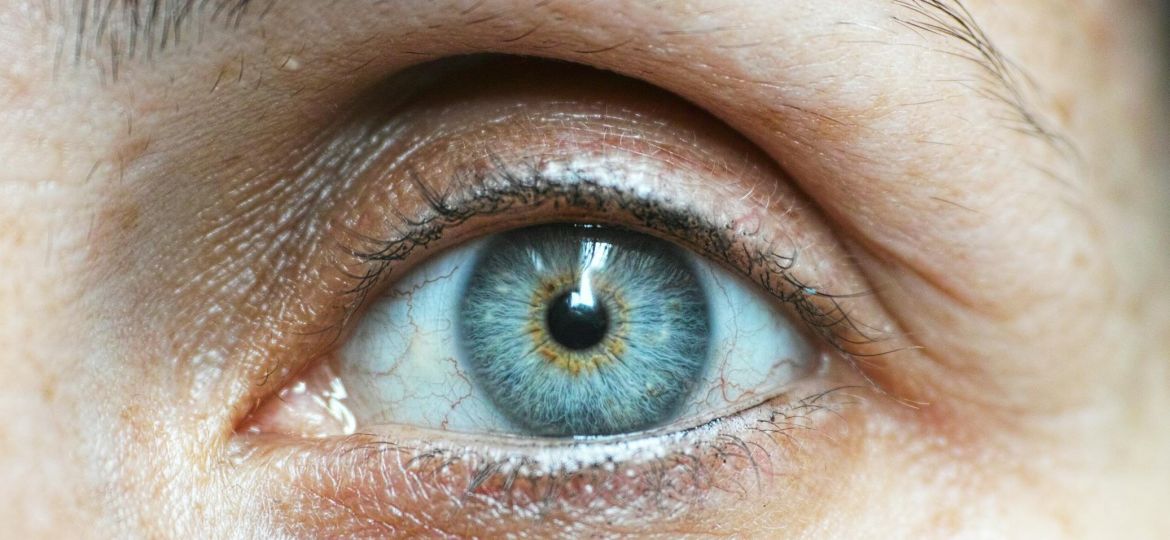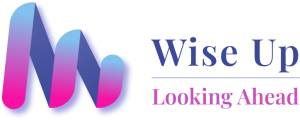
We probably all remember the saying that the eye is the window to our soul. But it’s now also, quite literally, becoming the window to our body and state of health.
Oculomics: A New Medical Frontier
Doctors have long understood that the eye can act as a ‘window’ to the rest of the body, offering direct insight into our overall health. Professor Pearse Keane coined the term oculomics to describe this concept of using the eye as a diagnostic tool for systemic health. The retina, located at the back of the eye, allows clinicians to directly observe both the vascular and nervous systems.
High-resolution imaging of the retina is now standard practice in eye care. In particular, a type of 3D scan known as optical coherence tomography (OCT) is widely used in clinics and even high-street opticians. In under a minute, an OCT scan generates a detailed cross-section of the retina—accurate to a thousandth of a millimetre.
Powered by artificial intelligence trawling through vast databases, the ability to detect illness before it becomes serious is accelerating at astonishing speed.
Beyond Eye Health: Detecting Systemic Diseases
Not long ago, retinal scans were used almost exclusively to monitor eye conditions, such as risk of glaucoma. Now, however, scanning the retina can reveal valuable clues about a person’s broader health.
In fact, one of the best predictors of the issues you might face as you age could be a retinal scan—far cheaper than checking into a longevity spa for a raft of tests predicting your biological age and future wellbeing.
AI-Enhanced Retinal Imaging
This is where things get interesting. In one of AI’s more promising applications, researchers can now use retinal scans to help detect serious diseases—including neurodegenerative conditions such as Alzheimer’s and Parkinson’s—well before symptoms appear.
Groundbreaking work is happening worldwide. In the UK, Moorfields Eye Hospital and UCL scientists have led the way in developing relevant AI tools. Their research involved an important step: data integration.
Teaching Computers to Be Medical Forecasters
To train an AI capable of spotting disease before it manifests, researchers began with a data feast. They used the AlzEye dataset—built by two NHS foundation trusts—which contains millions of retinal scans from Alzheimer’s patients, alongside full medical records.
But an AI trained only to recognise disease is half-blind. It also needs to know what healthy looks like. So the team incorporated scans from the UK Biobank, teaching the system to distinguish between normal variation and the subtle indicators of illness. Think of it as a highly advanced game of ‘spot the difference’. Impossible for most humans—but a doddle for a well-trained algorithm, which can swiftly return a prediction on-screen.
They also tapped into the world’s largest repository of retinal images and clinical data, creating a tool with extraordinary predictive ability. The result is a kind of medical fortune-teller—but instead of tea leaves, there’s a mountain of medical data behind the insights. Moorfields believes it can now detect Parkinson’s disease up to seven years before physical symptoms emerge. Similarly, the system is highly effective at flagging early signs of Alzheimer’s.
From Personal Crisis to Medical Revolution: The Mediwhale Story
While many startups are racing to harness retinal technology, none has a backstory quite like Mediwhale’s.
The company began with a devastating diagnosis. At just 24, Kevin Choi was told he had undiagnosed glaucoma.
During treatment, Choi struck up a conversation with his ophthalmologist, Dr Tyler Rim. A casual chat about machine learning quickly turned into something far more ambitious. By 2016, they had teamed up with tech expert Young Lee to launch Mediwhale.
What they’ve created is nothing short of remarkable—a system that looks into your eyes and sees your future. Think of it as Google Maps for preventative health: the humble eye scan transformed into a powerful health forecasting tool. “Many diseases are related to blood vessel damage,” says Choi. “By directly examining these vessels with AI, we can spot trouble years in advance.”
The magic lies in its simplicity. Your GP takes a retinal photo, the algorithm goes to work, and you get a personalised health report. No hospital visits. No radiation. No needles. Just a quick glance into your eyes to assess cardiovascular risk, kidney problems—even eye conditions themselves.
Their kidney risk assessment outperforms standard tests. Their cardiovascular predictions rival CT scans. And it all comes from a single eye scan.
Big names are taking notice. AstraZeneca recently awarded them a €40,000 grant—along with something more valuable: access. Mediwhale’s kidney-disease detection tool will soon be rolled out through AstraZeneca’s global innovation network, with full support to pilot its use in routine care.
Like all AI systems, the model has undergone rigorous training—over 500,000 retinal images from around the world. That dataset has already helped secure regulatory approval across Asia and Europe, with the US firmly in their sights.
“We’re making affordable, accessible preventive care available to over 300 million Americans,” says Choi. “No radiation, no bloods, no specialist appointments—just a quick scan at your GP’s office.”
It’s the kind of quiet medical revolution that slips into place almost unnoticed—until suddenly, everyone’s getting their eyes scanned not just for vision, but to glimpse their health future. For Choi—who nearly lost an eye—it’s poetic: his company now helps others preserve their health through the very organ that nearly failed him.
As the technology matures, retinal imaging could become one of modern medicine’s most powerful non-invasive diagnostic tools—poised to revolutionise how we deliver and think about preventive healthcare.

